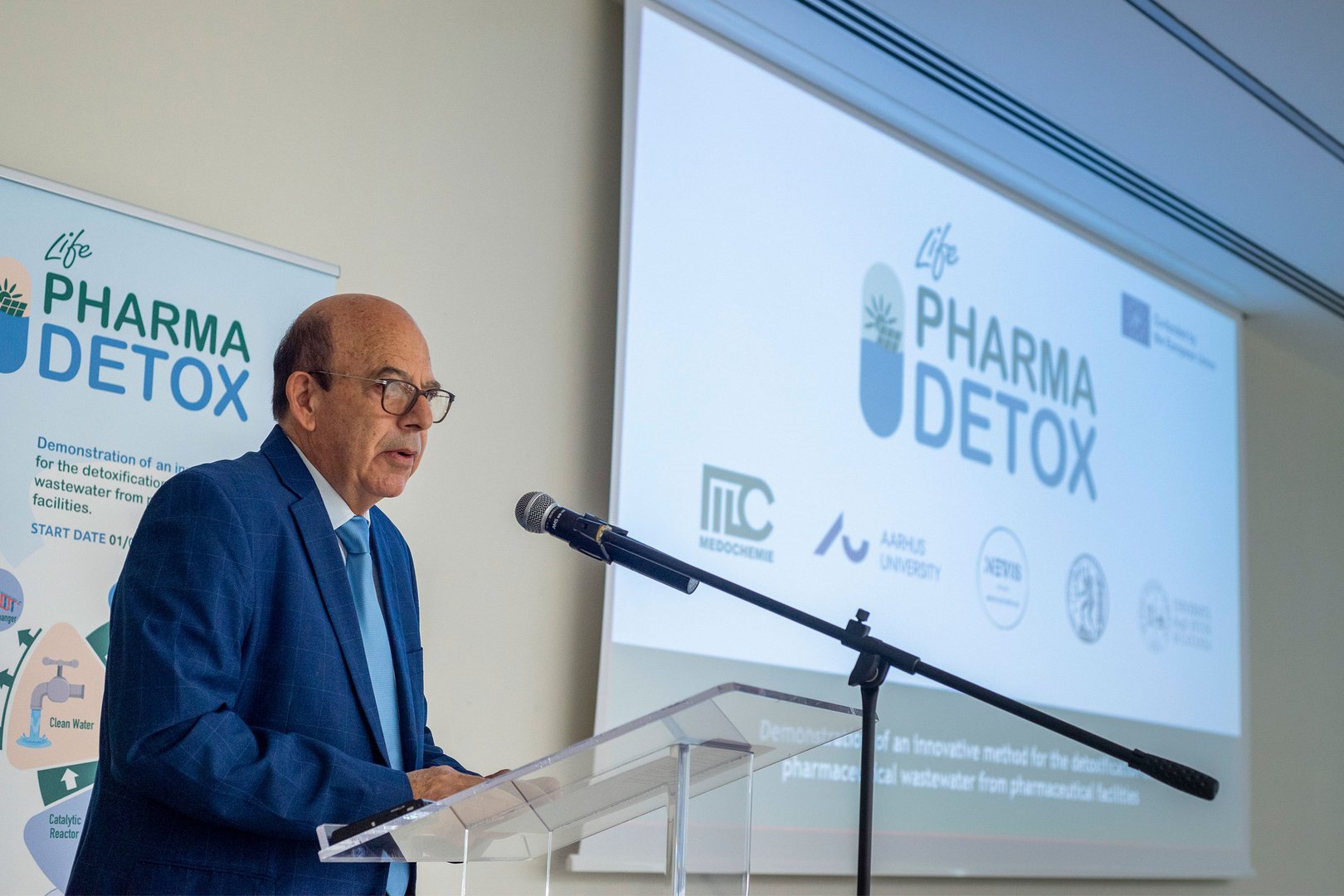A project which aims to detoxify wastewater of pharmaceutical origin was unveiled in Limassol on Thursday.
The project, called “Life Pharma Detox”, is being worked on by scientists from across Europe, and aims to detoxify wastewater – thus making it safe to re-enter the ecosystem – through the transformation of toxic chemical compounds into non-toxic ones.
It will be developed at the facilities of pharmaceutical company Medochemie in Limassol, before being expanded in two years to the company’s facility in Duiven, in the Netherlands.
The project’s budget has been set at €3.34 million and is expected to last five and a half years in total.
Speaking at the project’s unveiling, its coordinator Christakis Sergides said his team is working on implementing “an innovative, economically viable, and efficient system” to detoxify pharmaceutical wastewater.
He added that he plans to power the system with renewable energy sources, and that the water detoxified as a result of the project will be able to be used for the purpose of irrigation, heating, and cleaning.
Speaking about the problem at hand, he said that while the amounts of toxic pharmaceutical materials being put into the water system are “minimal”, but that a continuous introduction of such compounds can cause serious long-term effects for ecosystems.
Such issues, he said, include the entry of antibiotics into the water system. He said this matter in particular “causes great concern in the scientific community”, as it raises the probability of the development of antibiotic-resistant microorganisms.
Project director Maria Kyriazi explained the problem in greater depth, saying examinations of soil, animals, fish, and water have shown an accumulation of various active pharmaceutical ingredients in water systems, with a total of 559 different substances identified in water systems worldwide.
Of those different substances, 200 were found in drinking water.
She added that 100,000 tons of pharmaceutical products are consumed per year worldwide, with almost a quarter of that consumption taking place in Europe.







Click here to change your cookie preferences